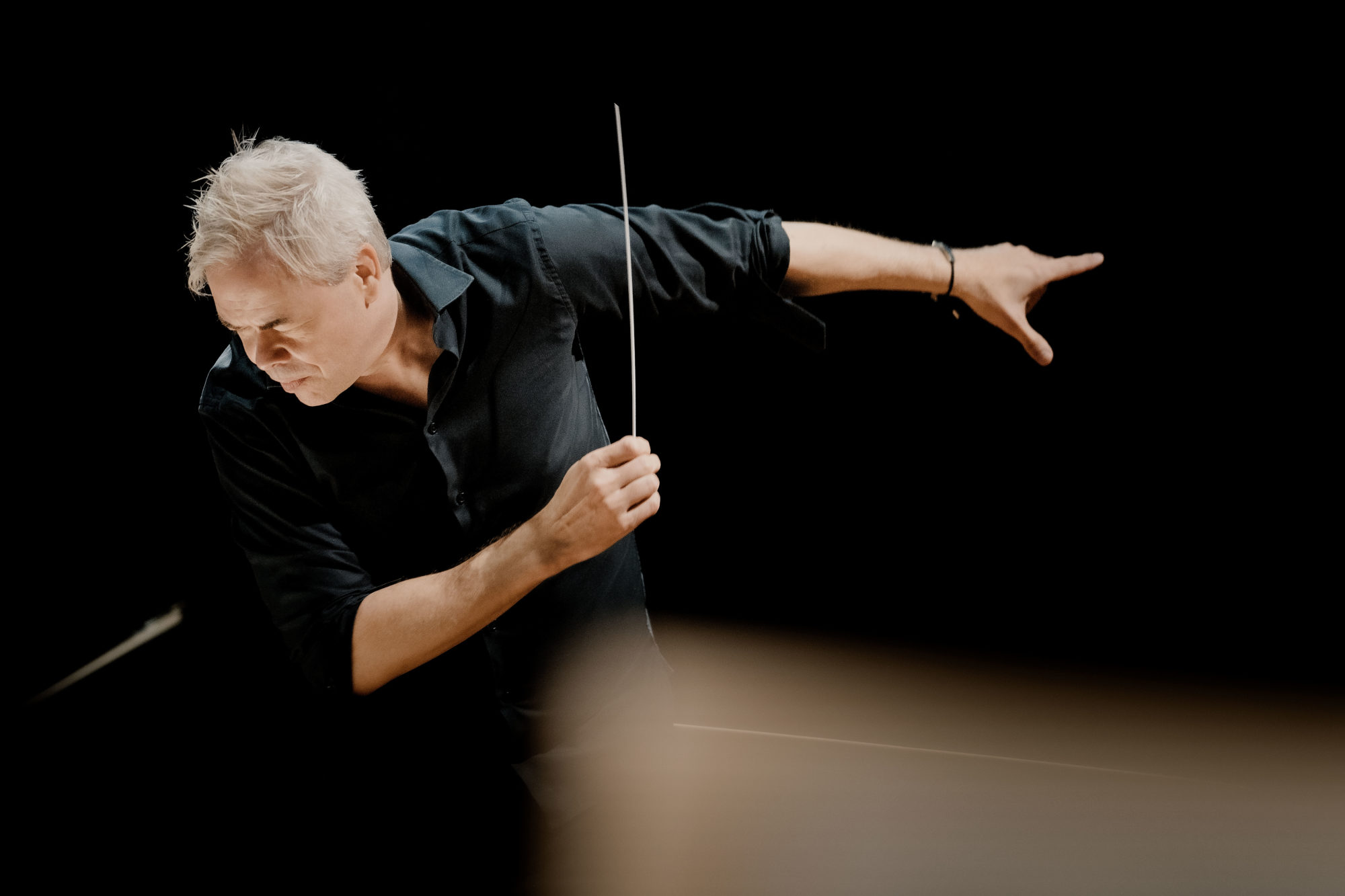Of MAW, Mahler and a Bold Transitional Season
Orchestral Performance of Mahler’s “Tragic” at the Granada Theatre Finalized a Strong Music Academy of the West Summer Festival

Fearful prospects of having a “tragic” Saturday night out last week were greatly exaggerated. Yes, Mahler’s epic Symphony No. 6 goes by the moniker of the “Tragic,” and yet the sweeping score, leaning into the faint glimmer of modernism on the horizon in its premiering year of 1906, is less devoted to gravitas for tragic residences than it is to life-affirming ebullience and kaleidoscopic emotionality. In other words, the Symphony is a full-service expression of human and orchestral life, engagingly organized on its vast but somehow intimate symphonic canvas.
As such, the Symphony proved to be ideal finale fodder for another strong summer festival from the Music Academy of the West. Finnish conductor Hannu Lintu masterfully guided the young but astonishingly fine musicians in the Academy Festival Orchestra, finishing off an especially notable and diverse series of orchestral Saturdays at the Granada, a series also featuring a righteous reading of Stravinsky’s proto-modernist masterwork Rite of Spring led by Anthony Parnther (see preview and review) and John Adams’ bracing Violin Concerto — featuring eminent violinist Leila Josefowicz and conductor David Robertson (review here).

But we digress, if slightly. Lintu’s Mahler Six made a strong and sensitive impact from the opening movement to its finale, awash in shifting orchestral colors and tempers, from cautious heroism to grim reflectiveness. The largesse of the implied structural arc of the symphony is mirrored by the largest orchestra Mahler ever called on, which here served the purpose of showcasing a huge population of MAW fellows. In fact, before the second movement, Lintu resorted to the unusual effort of pulling his podium and music stand closer to the lip of the stage, the better to see and be seen by the epic ensemble.
An unusually active percussion component also includes such left-of-traditional implements as jangling cowbells (triggering a common joke at the Granada, quoting Saturday Night Live: “more cowbell!”) to color the rustic folk-like moments in the score and the famed three “blows of fate” in the final movement. These are strategically-placed, thunderous smash-pounds of the jumbo, sledgehammer-like mallet on a massive resonance wooden box.
For all of its dynamically machined power and diversity over the course of its 75-minute run, the “Tragic” Symphony arrives with something of a surprise ending, winnowing down its formerly massed sonics to a soft musing of brass. But into this moment of calm, a fortissimo minor chord abruptly crashes, closing the Mahler-ian book in a dramatic way.
In all, the Mahler finale, we had a glorious conclusion not only to another fine Music Academy season that was, but closure of the significant orchestral culture in town, before the annual two-month hiatus.
A Quick Glance at the Academy Season Gone By
Once again, the Music Academy of the West laid out a lavish spread of musical culture — concerts, opera and voice enticements, masterclasses and more — for local music lovers in the would-be desert of summer. It remains official: we classical music aficionados are spoiled by MAW, year after year.

Its 77th season was a transitional year, with new head Shauna Quill taking charge after Scott Reed’s departure last year, and evidence shows that the organization remains in very sure hands. The festival began before the official beginning, with the annual “Gala” on the impossibly elegant Miraflores campus (just down the street from Ty Warner’s mega-compound), in which a fine feast also includes musical small plates. This time out, Academy alum and repeat professional returnee cellist Joshua Roman gave a short recital, touching on his struggles with long COVID and personal realizations about professional neuroses (link).
In the opening weeks, the ever-popular Percussionfest, gamely led by percussion faculty Michael Werner and his bold gang of young percussionists this year, did not disappoint (link).

An early highlight, to these ears, was ongoing faculty (and worldly) pianist Jeremy Denk’s fascinating and deep-diving performance (plus “mini-lecture” or whatever he’d prefer to call it) on the theme of Charles Ives’ captivating Concord Sonata (link). (Regrettably, I was out of town the week when Denk joined Joshua Bell for a Faure foray).
The widely-respected voice department delivered its annual fully-staged opera, Carmen, with an inventive minimalist staging and solid conducting by returning maestra Daniela Candillari (Candillari story here, Carmen review here). In other opera news, quirky deliciousness landed in Hahn Hall for a fantastical take on Ravel’s surreal and child-suitable (well, suitable-ish) one-act L’enfant et les sortilèges link)
From the pop-up corner of the summer schedule, my favorite surprise show came when the ripe new Arancia Quartet (formed in Santa Barbara in early June) settled into the Santa Barbara Museum of Art’s McCormick Gallery and gave a juicy reading of Gabriella Smith’s luminously cool 11-minute piece Carrot Revolution (link).
That piece is one of many still vaguely ringing in my ear, in the afterglow of a savory Academy banquet of music.

You must be logged in to post a comment.